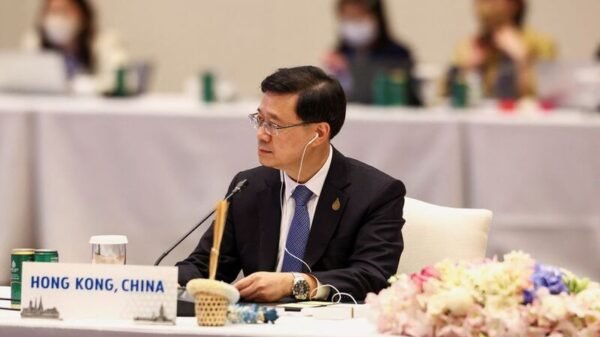Hong Kong Enacts Controversial Security Law After Years of Protests
Hong Kong has recently passed a stringent security law known as Article 23, which aims to tackle offenses such as external interference and insurrection, with penalties including life imprisonment. This law builds upon the previously controversial national security law imposed by China, which criminalizes secession, subversion, terrorism, and collusion with foreign forces.
Proponents of Article 23, including Hong Kong’s leader John Lee, argue that it is essential for safeguarding against potential threats to stability and preventing acts that could lead to the idea of an independent Hong Kong. The swift enactment of the law is seen as crucial for protecting core national interests, according to China’s Vice-Premier Ding Xuexiang.
However, critics, including human rights organizations and foreign officials, have expressed concerns about the erosion of civil liberties and the stifling of dissent. Amnesty International and Human Rights Watch have condemned the law as a blow to human rights, while the United Nations High Commissioner for Human Rights and the UK’s Foreign Secretary have criticized it for further damaging rights and freedoms.
Hong Kong residents have also voiced apprehensions about the broad and vague definitions in the legislation, particularly regarding offenses like possessing materials critical of the Chinese government or engaging in discussions perceived as leaking state secrets. There are fears of an informant culture and self-censorship, leading to a chilling effect on free speech and expression.
Some residents, like civil servant George and corporate consultant Liz, are worried about the ambiguity surrounding terms like “state secrets” and “external interference,” fearing they could inadvertently violate the law in everyday conversations or professional activities. Others, like corporate consultant Walter, are concerned about the law’s impact on Hong Kong’s competitiveness and its role as an international hub.
Despite these concerns, the Hong Kong government maintains that Article 23 targets a small number of individuals who pose a threat to national security and assures that law-abiding citizens will not be affected. However, the speed at which the law was passed, with limited public consultation, has raised questions about transparency and accountability in the legislative process.






































Comment Template